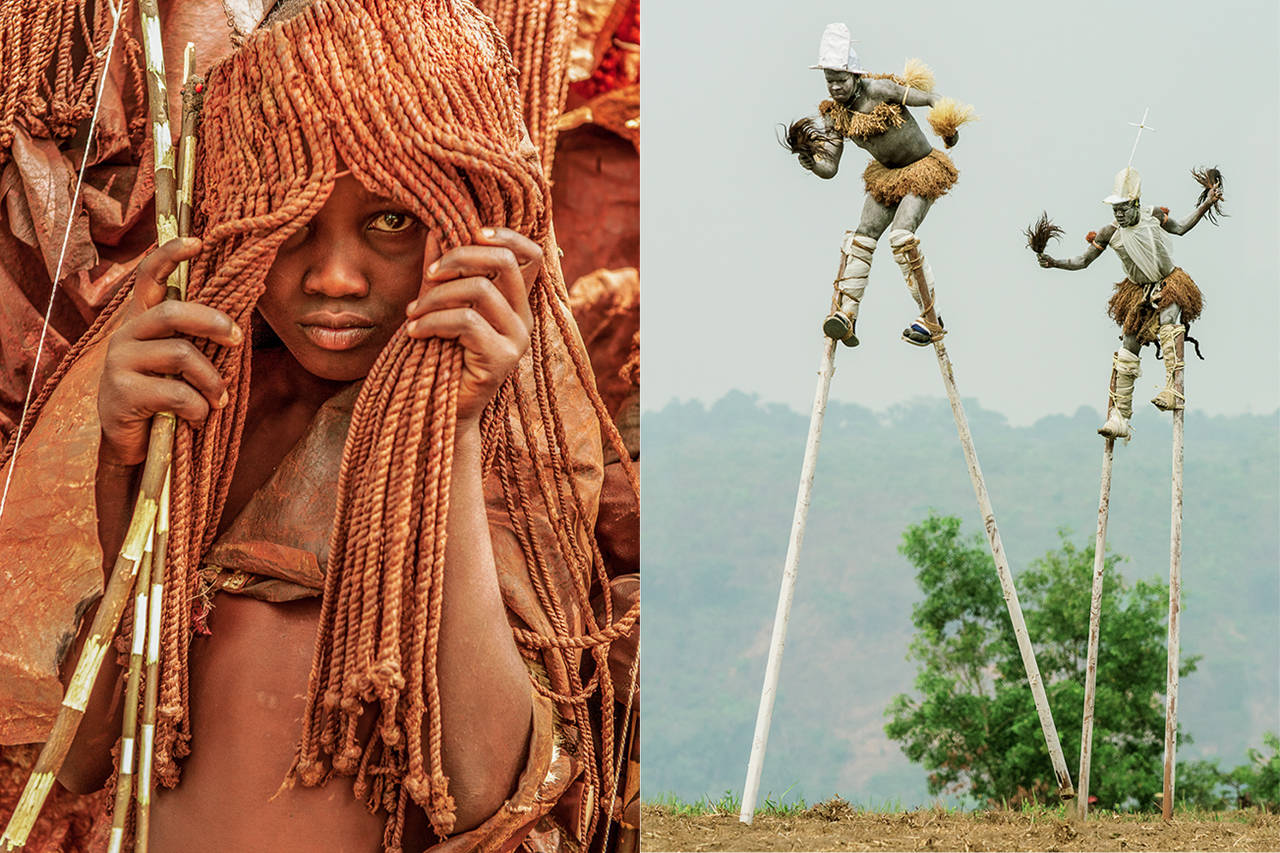Over the course of four decades, Carol Beckwith and Angela Fisher have traveled to 48 of Africa’s 54 countries to document the rituals of the people living there. From birth to death, the two women have captured it all on film.
“Carol Beckwith and Angela Fisher are not only truly remarkable photographers, but their dedication to preserving for all time the dazzling diversity of African Ceremonies is unparalleled,” a quote from Institute of Human Origins Director Dr. Donald Johanson said on the exhibition’s website. “Their celebration of African cultures will forever serve as the most compelling and passionate portrayal of the splendor of human creativity from the very continent that gave rise to all humanity.”
Since June 10, “African Twilight: Vanishing Rituals & Ceremonies” has been on display at the San Juan Islands Museum of Art and it will remain on site until Sept. 13. This is the first time this exhibit has visited the Pacific Northwest.
While this display shows photos from just a 15 year period, Beckwith and Fisher have spent the past four and a half decades traveling more than 300,000 miles to photograph Africa’s traditional societies. The two women have compiled a collection of more than a million photos, thousands of hours of video, and hundreds of artifacts and field diaries, according to NPR.
More than 40 of Beckwith and Fisher’s millions of photographs, a video and “countless extraordinary moments highlighting a vibrant cultural landscape in Africa” have come to SJIMA as part of this exhibit.
Beckwith and Fisher have sought out remote communities in hopes of recording and preserving sacred ceremonies, art, and creativity of the people of Africa. Together, the duo has released 16 acclaimed books on the topic.
“Their images capture the continent’s vast diversity while documenting profound moments of commonality in the human life cycle, including unique initiation ceremonies, colorful courtship rituals and intimate healing practices for the living and burial rites for the dead,” a press release for the exhibit said. “The pioneering documentary photographers have recorded African tribal cultures for 45 years — a world that is quickly vanishing before our very eyes.”
More than 40 percent of what has been documented in the African Twilight series has already vanished, according to Beckwith and Fisher.
Beckwith was born in the United States and received an education at the Boston Museum School of Fine Arts in painting and photography. In 1974, she chose to live within the cultures that inspired her photography and painting in Africa.
Fisher was born in Australia and received a degree in social science from Adelaide University. She first moved to Kenya in 1970. The two photographers met in 1974 at an exhibition of traditional African Jewelry Fisher was presenting in Nairobi.
Visit SJIMA to view “African Twilight: Vanishing Rituals & Ceremonies” before it leaves after Sept. 13. The museum is open from 11 a.m.-5 p.m., Thursday through Monday. With extended summer hours from 7-9 p.m., Thursday through Saturday. Admission is $10; SJIMA members and visitors 18 and under are admitted free of charge and Monday is pay what you can. For more info, visit sjima.org or call 360-370-5050.
This exhibit is sponsored by Glen Moreno & Marilee Wood; with help from The Honeywell Charitable Fund; Susan and Gary Sterner; the Town of Friday Harbor; the San Juan Island Community Foundation; the Orcas Island Community Foundation; Kim Miller; Peg Gerlock and Phil Johnson; Dave Ralston and Don Pollard and an anonymous sponsor. Additionally, in-kind donations supporting “African Twilight” have been provided by Printonyx; Alchemy Art Center; Harbor Rentals; Joe Cooper Design LLC; Richard Hobbs; FAIA; and Browne’s Home Center.
“The most enduring truth we have learned from Africa is that although we all appear different from one another — naked or dressed, painted or veiled — we are the same human beings with similar emotions and human needs,” Carol Beckwith said. “We believe that celebrating our similarities while accepting our differences will help lead us to a more peaceful coexistence.”



